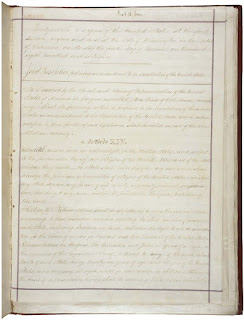“England's course towards the United States during the rebellion exasperated the people of this country very much against the mother country. I regretted it. England and the United States are natural allies, and should be the best of friends. They speak one language, and are related by blood and other ties.”
There was a real danger that Great Britain would support the Confederacy …
The biggest issue of Abraham Lincoln’s presidency was the rebellion of the Southern states, and the Civil War that quickly erupted when they tried to leave the Union in 1861. There may be good reason for thinking of this kind of domestic rebellion as a “domestic” policy issue. But it also involved complicated foreign policy, as the Southern states tried to get European powers to intervene on their behalf. In particular, the South tried to get Queen Victoria’s British Empire to support the Confederate war efforts. If this had happened, there was a chillingly real possibility that the Civil War would have ended very differently than it did. For example, we might have been forced to become two countries, with chattel slavery living on for years in the more southern country. Abraham Lincoln was just as determined to prevent this from happening. To some degree, Civil War diplomacy also involved distant France, nearby Mexico, and the various Native American tribes who made various choices about whom to ally with. But the two sides’ respective relationships with Britain were the most important theatres of the chess game, since the British had the most power to affect the war’s outcome. Thus, an examination of the Civil War diplomacy might be in order here, to show how both Abraham Lincoln and Jefferson Davis conducted diplomacy with the mighty British Empire.
Charles Francis Adams, Sr. – Lincoln’s ambassador to Britain






























